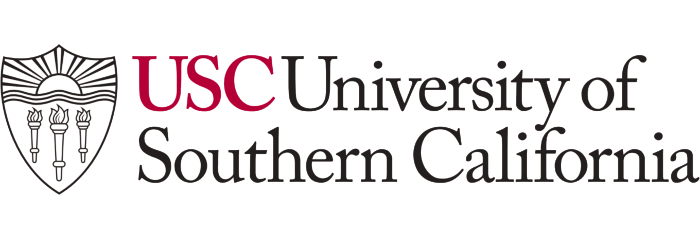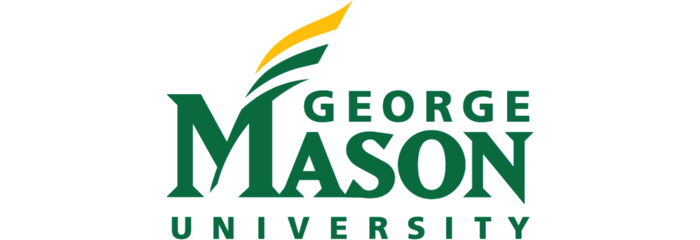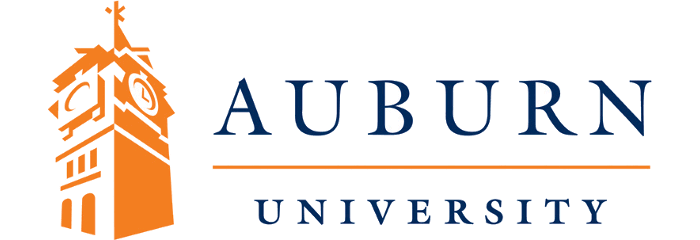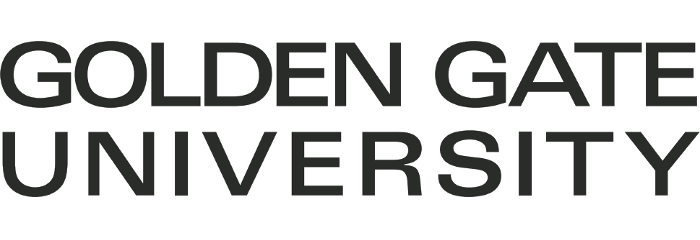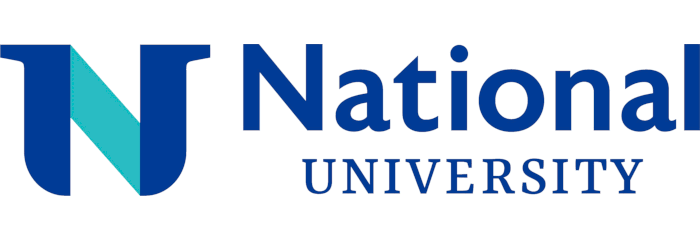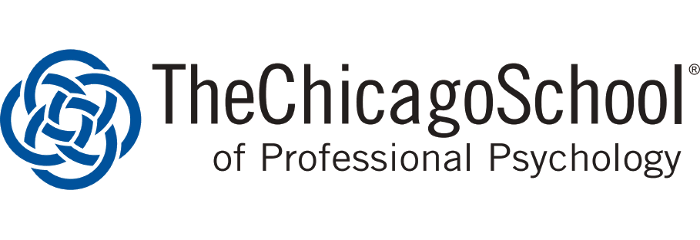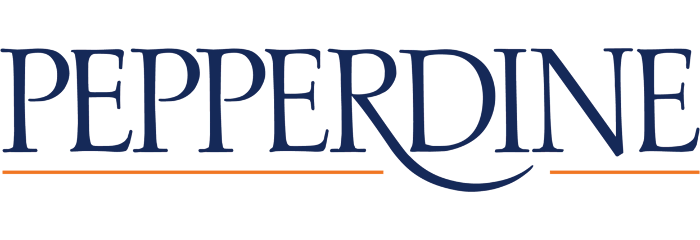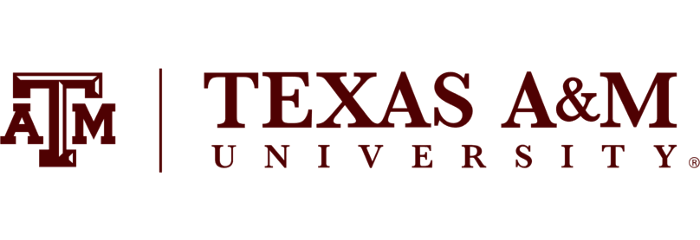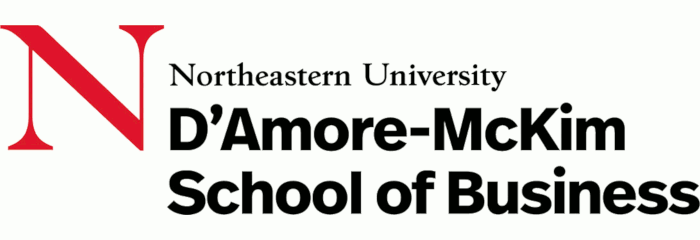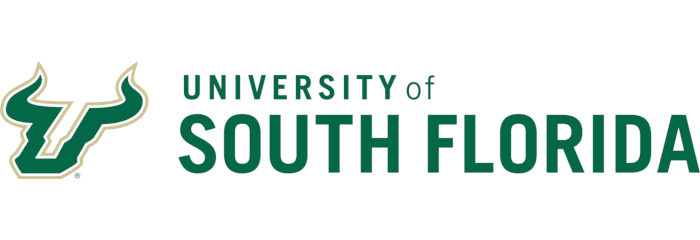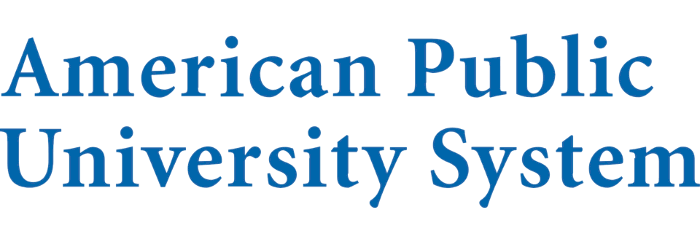A master's in psychology online offers a flexible way to advance your understanding of psychological theories and practices, with specializations like Clinical, Counseling, or Organizational Psychology.
Top 3 Takeaways:
- Alliant International University ranks #1 overall for its online master's in psychology that earns its graduates the best median salary at $96,839.
- Liberty University has the most extensive online enrollment, with 45,783 students studying remotely at the graduate level.
- The University of Southern California ranks #2 overall, with a standout graduation rate of 92% overall.
Our rankings focus on alum salaries, using a unique Salary Score to showcase the best financial outcomes, with additional factors like online enrollment considered when alumni data wasn't available. Learn more about our methodology.
2025 Best Online Master's Degrees in Psychology
| Rank | School | Salary Score | Median Earnings | Learn more about how we make money.' > | $96,839 | 2,104 | $35,574 | |
|---|---|---|---|---|---|---|---|---|
| University of Southern California | A+ | $92,969 | 6,276 | $60,027 | ||||
| Loyola Marymount University | A+ | $89,243 | 635 | $34,272 | ||||
| George Mason University | A+ | $79,290 | 7,421 | $12,225 | ||||
| Touro University | A+ | $78,883 | 3,433 | #1
Online degree: Why we like them: AIU's master's degree in psychology online features high median earnings of $96,839, placing graduates in the top 1% nationally compared to peers. This 33-unit program can be completed in one year full-time or two years part-time. The curriculum emphasizes talent management, organizational development, human resource management, and diversity initiatives, incorporating real-world projects that prepare graduates for various careers, including management consulting. We also like that AIU has a student-to-faculty ratio of 4:1, showing students benefit from personalized attention. #2
Online degree: Why we like them: USC's online Master of Science in Applied Psychology produces graduates with a median salary of $92,969, placing it in the top 1% nationally. The program emphasizes consumer and organizational psychology and is designed for working professionals. This 16-month program requires full-time enrollment and includes a practicum through 240 hours of internships, enhancing students' skills and qualifications. With a 94% recommendation rate, it prepares graduates for careers in user experience research, human resources, and organizational development. #3
Online degree: Why we like them: LMU offers a Master of Arts in Educational Psychology that's designed to prepare students for successful careers in school psychology. Graduates rank among the top earners nationwide with a median salary of $89,243, an A+ Salary Score in the 99th percentile compared with peers. The program comprises 63 course units, a 500-hour practicum, and a 1,200-hour internship, integrating online and in-person learning. This curriculum is aligned with the NASP Practice Model and ensures a comprehensive educational experience. Graduates are qualified for NCSP and LEP credentials. #4
Online degree: Why we like them: GMU ranks high for the median earnings of $79,290 for graduates of the online master's in psychology, placing it in the 97th percentile. Its online enrollment is in the top 5%, showcasing diverse academic offerings. The online Master of Professional Studies in Applied Industrial and Organizational Psychology prepares students with skills for workplace innovation and productivity. The curriculum emphasizes hands-on learning in areas like motivation and well-being and applied leadership in the workplace, supported by faculty from esteemed institutions, ensuring exposure to valuable industry insights. #5
Online degree: Why we like them: TC Master of Arts in Industrial-Organizational Psychology ranks among the top programs for salary outcomes, with graduates earning a median salary of $78,883. The school also features a 9:1 student-faculty ratio, an 84% retention rate, and a 72% recommendation rate, appealing to prospective students. The 36-credit curriculum includes courses such as Organizational Health Psychology, Leadership Coaching, and Personnel Selection Procedures & Employment Law, culminating in a 240-hour capstone internship that provides valuable real-world experience. #6
Online degree: Why we like them: UGA offers an online Master of Education in Educational Psychology with a concentration in Applied Cognition and Development, where graduates earn a median salary of $74,748, ranking in the top 7% nationally. The 34-credit-hour program allows secondary focuses, such as learning with technology and qualitative approaches. Fully accredited by the Southern Association of Colleges and Schools Commission on Colleges, it will enable transferring up to six credits from accredited institutions. #7
Online degree: Why we like them: Palo Alto ranks among the top online psychology programs, with a median graduate salary of about $73,478, placing it in the top 8%. It offers flexibility for working professionals, allowing completion in six to seven quarters with 37.5 to 47 quarter units, depending on the concentration. Students can choose from PhD Prep, Forensic Psychology, Technology and Mental Health, or a Generalist path. The program is accredited by the WASC Senior Colleges and Universities Commission, providing a solid foundation for advanced studies or careers in psychology. #8
Online degree: Why we like them: AU offers a Master of Science in Industrial/Organizational Psychology designed for applied settings, available online and asynchronously. The program consists of 30 credit hours, including 6 core courses, electives, and a practicum, and can be completed in about 2 years. Graduates benefit from median earnings of $72,858, placing AU in the top 9% nationally for this metric. With 3,101 students enrolled online at the graduate level, AU ranks in the top 14% for online enrollment, reflecting a commitment to accessible online education. #9
Online degree: Why we like them: FSU ranks 9th for its psychology master's degree's A- Salary Score, which results in a notable median earnings of $66,047 placing it in the top 22% for earning potential nationwide. It has a specialization in Learning and Cognition, a 33-credit online program catering to working professionals from diverse backgrounds. The program is accredited by the Southern Association of Colleges and Schools Commission on Colleges, ensuring its quality and relevance in the field. #10
Online degree: Why we like them: GGU offers an online Master of Arts in Counseling Psychology that is license-eligible and does not require GMAT or GRE scores. With a median earning potential of $65,080, it ranks in the top 25% for salary outcomes. The program comprises 60 units and a 300-hour face-to-face traineeship at various mental health facilities. Coursework covers Lifespan Development and Therapeutic Communication while allowing students to accumulate personal psychotherapy hours. This curriculum meets California's MFT and LPCC licensure requirements, making it a solid choice for online learners. #11
Online degree: Why we like them: NU ranks first in earnings with a median salary of $62,538, placing it with a B+ Salary Score in the 68th percentile among institutions. The Master of Arts in Psychology - General Psychology offers flexibility with weekly course starts, allowing completion 100% online without residency or group work. Taught by faculty with doctoral degrees, this 30-credit program emphasizes research, critical thinking, and diversity. Completion typically takes 18 months with individualized learning interactions, which is ideal for those pursuing academic and research-focused careers. #12
Online degree: Why we like them: CSPP online ranks in the top 35% for graduate salaries, with a B+ Salary Score and median earnings of $61,812. The innovative MA in Applied Psychology offers a one-year full-time or 16-month part-time path and includes ten career-focused concentrations, such as Applied Behavior Analysis, Forensic Psychology, and Public Health. Students engage in an Applied Research Project, preparing for leadership roles in various sectors, including human services, healthcare, and education. #13
Online degree: Why we like them: PU ranks 13th for its online master's programs based on a B Salary Score, with graduates earning a median salary of $61,442 that places them in the top 36% of similar programs. The online master's in clinical psychology prepares students for licensure as a Licensed Professional Clinical Counselor (LPCC) or Licensed Marriage and Family Therapist (LMFT). The program covers 62 to 68 units, can be completed in as few as 27 months, and includes practical training with a multicultural approach. We also have to mention PU's stunning 95% recommendation rate. #14
Online degree: Why we like them: TAMU offers an online MEd in Educational Psychology focusing on School Counseling, designed for K-12 educational settings. Graduates earn a median salary of $61,164, ranking in the top 37% nationally. The program features flexible learning formats and includes a two-semester internship in a TEA-accredited school, requiring 400 on-site counselling hours. Admission does not require the GRE, but a valid Texas teaching certificate and classroom experience are preferable. This program aligns with Texas school counselor certification requirements. #15
Online degree: Why we like them: WJC ranks 15th for its online master's in psychology, with median earnings of $59,748 that places it in the top 42% of programs for salary outcomes. The program is delivered entirely online, providing flexibility for students. With a student-faculty ratio 5:1, learners receive personalized support from experienced scholar-practitioners who connect theoretical knowledge with real-world application. The curriculum covers various psychological domains, but graduates do not qualify for independent mental health practitioner licensure. #16
Online degree: Why we like them: CBU offers a Master of Science in Counseling Psychology designed for those pursuing licensure as LMFTs or LPCC in California. The program spans 62 to 68 units, typically completed in around 24 months, blending synchronous and asynchronous learning for flexibility. CBU ranks in the top 42% for salary outcomes, with a median earning potential of $59,740. Its robust online enrollment reflects a commitment to accessible education for working adults within a faith-based community, focusing on essential therapeutic skills. #17
Online degree: Why we like them: Northeastern's Master of Science in Applied Behavior Analysis prepares students for behavior analyst roles across various settings, including schools and hospitals. This online program takes 18 to 24 months to complete and is accredited by the Association for Behavior Analysis International (ABAI). Graduates fulfill the coursework requirements for the 5th Edition Behavior Analyst Certification Board (BACB) exam. The median salary for graduates of this program is $58,476, ranking the program in the top 46% for earnings. #18
Online degree: Why we like them: OLLU ranks 18th for salary outcomes, offering an online Master of Arts in Counseling with three specializations — Clinical Mental Health Counseling, Clinical Rehabilitation Counseling, and School Counseling. This 3.5-year program is entirely online, requiring no on-campus residency. It includes 600 hours of internships and 100 hours of practicums, emphasizing real-world skills. The curriculum aligns with CACREP standards, with accreditation pending, ensuring quality preparation for certification in various counselling fields. Tuition is $991 per credit, requiring 60 credits for program completion. #19
Online degree: Why we like them: CIIS has a psychology master's that results in graduates with a median salary of $57,904, placing it in the 52nd percentile nationwide. The online Master of Arts in East-West Psychology is a two-year, non-clinical program requiring 36 units, blending Western, Eastern, and Indigenous psychology and spirituality. Courses are delivered synchronously and asynchronously, culminating in an integrative seminar for the capstone project. Specializations include Asian Psychologies, Depth Psychology, and Ecopsychology, with teaching and research assistantship opportunities. #20
Online degree: Why we like them: USF UUֱ�� excels in online enrollment, ranking among the top 7% of institutions for distance learning participation. With a graduation rate in the top 11% nationally, students here are well-supported as they pursue degrees, leading to median salaries that fall within the top 50% of schools. The fully online Master of Science in Child and Adolescent Behavioral Health prepares graduates for various roles in public and nonprofit agencies, offering two tracks: a thesis track for research and an applied track with field experience. Specializations include Leadership, Developmental Disabilities, Research and Evaluation, and Youth Behavioral Health. #21
Online degree: Why we like them: Winthrop offers an innovative online Master of Education in Counseling and Development, completed in two years. This CACREP-accredited program provides two concentrations, Clinical Mental Health and School Counseling. Graduates achieve a median salary of $56,241, indicating strong potential returns on investment. The curriculum prepares students for the National Counselor Exam and the National Clinical Mental Health Counseling Exam, culminating in 600 internship hours and 175 practicum hours under expert faculty supervision, ensuring thorough preparation for professional licensure in the region. #22
Online degree: Why we like them: LU ranks among the top 1% in online enrollment with 45,783 students, reflecting its strong commitment to accessible education. The online Master of Arts in Applied Psychology features a flexible 8-week course structure, allowing for up to 50% credit transfer. It offers Developmental, Industrial/Organizational, and Public Mental Health Psychology concentrations, combining psychological theories with a Christian worldview. Core topics include research methods, social psychology, and test construction, which provide practical, career-aligned projects to prepare graduates for diverse roles in the field. #23
Online degree: Why we like them: CU's Master of Science in Psychology offers five concentrations: General Psychology, Child and Adolescent Development, Educational Psychology, Industrial/Organizational Psychology, and Sport Psychology. This accredited program emphasizes practical application of psychological science to understand human behavior. Courses are structured to build foundational knowledge before diving into specialization-specific content, leading to a final project that integrates learning into real-world applications. #24
Online degree: Why we like them: SNHU ranks 24th for its online Master of Science in Psychology, which requires 36 credits through 12 courses, focusing on real-world applications in psychological research. Concentrations include Child and Adolescent, Forensic, and Industrial-Organizational Psychology, each designed to provide specialized skills for various career paths. While the program does not lead to licensure, it emphasizes psychological assessment and intervention techniques. Accredited by the New England Commission of Higher Education (NECHE), the program maintains high academic standards. #25
Online degree: Why we like them: UofP ranks in the top 1% of institutions for online enrollment, boasting 18,919 students in its flexible graduate programs. The Master of Science in Psychology comprises 36 credit hours with core courses such as Developmental Psychology, Biological Behavior Basis, and Personality Theories. Accredited by the Higher Learning Commission since 1978, this program equips graduates with skills to analyze human behavior and address personal, social, and organizational issues. The curriculum offers vital competencies relevant to various sectors, making it a practical choice. #26
Online degree: Why we like them: ASU Online ranks in the top 2% of universities for online enrollment with over 16,309 students participating in graduate online learning. The online Master of Science in Psychology program requires 36 credits across 12 classes, each lasting 7.5 weeks, and can be completed within one year entirely online. This accredited program provides a solid foundation in psychological theory and empirical research, focusing on human behavior, cognition, emotion, and attitudes. By offering flexible learning options, ASU Online prepares you for various roles in the psychology field. #27
Online degree: Why we like them: Purdue Global ranks in the top 2% of schools for online enrollment, boasting 11,615 students. The university's MS in Psychology allows you to specialize in Addictions, Forensic, Industrial/Organizational Psychology, and General Psychology, requiring 60 to 75 quarter credits. The program emphasizes practical experience and prepares students for the NCC AP Master Addictions Counselor certification. With a 75% recommendation rate, Purdue Global demonstrates high student satisfaction. Unique resources, such as a graduate resource center and personalized support, also enhance the educational experience,. #28
Online degree: Why we like them: APUS has over 9,000 online graduate students, placing it in the top 2% nationwide for popularity. The online Master of Arts in Psychology is a 39-credit program that prepares students for diverse careers. This program combines scientific principles with practical skills and offers developmental-personality and industrial-organizational psychology concentrations. The curriculum emphasizes foundational psychology concepts and contemporary applications, culminating in an integrative capstone project. #29
Online degree: Why we like them: NSU is among the top 3% of institutions for online enrollment, with 5,059 online learners actively participating at the graduate level. The Master of Science in General Psychology offers flexibility for various professional fields. This 30-credit program provides tracks in general psychology or an applied health science concentration that caters to healthcare professionals. It emphasizes foundational psychological theories and prepares students for advanced studies but does not lead to licensure. #30
Online degree: Why we like them: Regent ranks #30, driven by solid online enrollment with over 5,000 students, placing it among the top 4% of institutions in this category. The Master of Science in Psychology is an online program requiring 39 credit hours designed to deepen understanding of cognitive neuroscience and social interactions. Students can choose Addictions, Cyberpsychology, and Industrial-Organizational Psychology concentrations, aligning with their career goals. Fundamental courses include Contemporary Psychology, Statistics I and II, and Research Methods in Psychology. Accredited by SACSCOC, this program prepares graduates for careers across various sectors, including healthcare and business. What Is a Master's in Psychology Degree?If you have a strong interest in human behavior and a desire to help others, earning a master's in psychology might be a good step for you. It's a versatile degree that can open doors to several different occupations. For instance, you could become a therapist or counselor who specializes in working with families, school children, or people with addictions. You could earn a doctorate in psychology and work as a clinical psychologist or in academia as a researcher and educator. Other possibilities include advanced positions in business and education. Psychology is so versatile because it is the study of the mind and human behavior — things we encounter every day. Psychology programs typically include courses that will help you understand individuals and their relationships with family, friends, and colleagues. You are likely to learn many theories of psychology and how to apply them in the practice of evaluating and treating patients. Master's programs in psychology are very popular, and you'll find plenty of options for earning a psychology degree online. Programs typically lead to either a Master of Science (MS) or Master of Arts (MA). MS programs often emphasize research and data analysis, which is why they may be a better choice for those who plan to go on to a doctoral program, while MA programs typically provide a broader overview of psychology. Both types of programs may offer an area of specialization or concentration so you can choose one that is most relevant to your goals and interests. Degree RequirementsTo be accepted into a psychology master's degree program, you'll need to have earned a bachelor's degree from an accredited university, possibly with a GPA of 2.8 or higher. Your undergraduate degree does not necessarily have to be a bachelor's in psychology or a related field. However, if you didn't study psychology as an undergraduate, you may need to take a few prerequisite courses before starting on your master's courses. Some schools may also require you to submit GRE scores with your application. Master's in psychology programs vary widely in the number of required courses, anywhere from 30-48 credit hours. Other graduation requirements also vary. Your program may include an internship, an externship, a specified number of hours of field experience, or a capstone project or course. Some schools also offer a thesis track and a nonthesis track, which usually replaces the thesis with a comprehensive final exam. CoursesThere is a lot of variety in the courses in psychology master's programs, mainly because they are often centered around different focus areas. For example, a master's in general psychology is usually designed to prepare students for a career in counseling or doctoral studies in clinical psychology. Other programs may focus on topics such as applied psychology, marriage and family therapy, neuropsychology, and human development. Ethics may be addressed in a standalone course or woven throughout the curriculum. Some of the courses that are likely to appear in an on-campus or online master's in psychology program include the following: Behavior Analysis and Modification This course introduces the theory and practice of treating psychological problems by helping patients adopt strategies for modifying their behavior. Some of the common topics include positive and negative reinforcement, clinical and nonclinical treatment settings, and ethics in intervention. Counseling and Psychotherapy The purpose of this course is to assist future counselors and therapists in developing a personal practice theory. After studying many of the major theories of psychotherapy, students will discover how to create treatment plans, set goals with their patients, and formulate intervention strategies. Psychopathology In this course, students learn to diagnose, treat, and prevent psychological disorders. Topics usually include abnormal development, dysfunctional behavioral patterns, and ethical treatment of patients. Students will become familiar with the DSM Classification System for Mental Disorders. Research Methods and Data Analysis This course helps students develop quantitative and qualitative research skills, which can be used in many occupations related to the social sciences. Through hands-on projects, students learn how to design psychology studies and experiments, form hypotheses, collect and analyze data, and present their conclusions. The purpose of the course is to show students how to apply data in the treatment of patients. Psychology SpecializationsAs a science, psychology is broad and diverse. Many master's degree programs offer specializations so that students can zero in on the particular aspect of psychology they find most interesting or relevant to their career goals. Below are some of the more common specializations: Child Psychology Child psychology trains therapists to work with children and their families to identify and address behavioral and emotional problems. Some child psychologists work exclusively in schools, helping younger students overcome issues that may hamper their abilities to learn and build healthy relationships with others. Clinical Psychology Clinical psychology courses train future therapists to work directly with patients and with other healthcare professionals to diagnose mental disorders and develop treatment plans. Students learn techniques for working with individuals, families, and groups, and there is usually a heavy emphasis on evidence-based research. Counseling Psychology Counseling psychology focuses primarily on the practical application of psychology theories and concepts as a means of helping people understand their behavior and manage their emotions more effectively. This concentration may be a good choice for students who plan to become licensed therapists and counselors without pursuing a doctorate. Developmental Psychology Developmental psychology courses explore the many types of changes that humans typically experience as they go through life. Many people struggle with adapting to life's changes — such as the loss of a spouse or child — and developmental psychologists help them by diagnosing and treating issues that may result from an inability to adapt to change. Forensic Psychology Forensic psychology combines the study of psychology with the study of law. In this concentration, students learn how to use the principles of psychology to try to understand an accused person's behavior and motives. Students may be required to take courses in the judicial system and criminology. Health Psychology This concentration focuses on training therapists to assist people and families who are experiencing chronic illness and disabilities. Students learn how to support individuals with mental health challenges associated with their illnesses, help patients develop coping strategies, and coach family members on adjusting to new conditions. Industrial-Organizational Psychology Industrial-organizational psychology — often referred to as I/O psychology — is the study of human behavior within organized groups. I/O psychologists often work with various types of groups, such as corporations, political parties, and teams, by helping the members understand the group's interactions and learn how to communicate more effectively. Social Psychology This concentration applies the concept of group dynamics to an entire community's behavior, and social psychologists usually focus on solving social problems. Social justice classes are often included to help students understand how cultural, economic, and political factors shape community values. What Can You Do With a Master's in Psychology Degree?A master's degree in psychology gives you several different options. You could pursue the type of job where you counsel adults, children, individuals, and families. Your understanding of human behavior could also lead you to a career in business that involves working directly with other people, such as a human resources manager or sales director. Of course, you can also continue on your educational journey and further develop your expertise in a particular aspect of psychology. Further EducationAfter earning your master's in psychology degree, you may want to launch your career search and move directly into the workforce. Then again, depending on your chosen career path, you may want to pursue additional education or degrees in psychology. The following are some of your options: Doctorate in Psychology Depending on your interests, you can choose to pursue one of two types of doctorates in psychology. A Doctor of Psychology (PsyD) is designed to train students who plan to become practicing psychologists. A Doctor of Philosophy (PhD) in Psychology, on the other hand, is for those who want to engage in academic research and teaching. It's important to note that you don't have to earn a master's degree before enrolling in a psychology doctoral program. Many PsyD and PhD programs combine all of the master's-level and doctoral-level coursework into one program. Psychology Certificates Once you've completed your master's or doctorate in psychology, you may want to explore a specific area of psychology, such as forensic psychology or industrial/organizational psychology, in greater depth. To achieve this, you can pursue a post-graduate certificate in the subject. Certificate programs usually require only four to six credit hours, which can often be completed in about a year. While certificates are available from accredited institutions, you can also develop specific skills or study particular subjects through professional training programs. Examples include hypnotherapy or school psychology. After completing the training course, you usually take an exam to earn certification in that skill or subject. To ensure you're getting a recognized certification, you may want to look for programs that have been approved by the (APA). Psychology CareersA psychology master's degree prepares graduates for a number of different occupations, which we describe in detail in our psychology career guide. Those who are interested in helping people improve their mental health may look for psychology degree jobs such as marriage and family therapist, substance abuse counselor, mental health counselor, social worker, behavior disorder counselor, and school counselor. To become a clinical psychologist, however, you'll need to complete a doctoral program in clinical psychology. In most states, counselors, therapists, clinical social workers, and other professionals who advise clients or patients must obtain a state license to practice. Licensure requirements vary by state and occupation. However, they usually involve earning an advanced degree from an accredited school, submitting an application to the state board, paying a fee, and passing an exam. Some states also require applicants to accumulate hundreds of hours of supervised training, often referred to as clinical experience. Financing Your Master's Degree in PsychologyBefore you apply for acceptance into a psychology master's degree program, you may want to determine approximately how much you can afford to pay for your education. Comparing this estimate to the total cost of earning a master's in psychology through a range of programs may help you determine the school you'd like to attend. CostAnnual tuition fees vary widely among the schools on our list of the best online master's degrees in psychology. Even within the same school, tuition fees often differ for in-state residents, out-of-state residents, and distance education students, so be sure to use the appropriate fees when calculating your costs. Learners may also have to pay a technology fee for online classes, but these minimal costs will be offset by the money saved on room, board, and transportation costs. Financial AidWhether you're attending school online or on campus, you can apply for financial aid by submitting the Free Application for Federal Student Aid (FAFSA). Once your application has been processed, you'll be notified if you qualify for aid from one of the many common sources of college funding. These include the federal and state governments and your school itself. If you're offered a financial aid package, it may contain several types of aid. Grants and scholarships are preferred because they typically don't need to be repaid. Some organizations also sponsor private scholarships for psychology students, but you'll need to submit separate applications for them. Your financial aid package may also include a student loan. The interest on a loan can add a substantial amount to the total cost of your degree, so use our student loan repayment calculator to determine the full cost of a loan. Keep in mind that federal student loans often have lower interest rates and more flexible repayment terms than private student loans. Although loans should be considered with care, both types may help you earn your degree. Looking for the most cost-effective way to earn an online psychology degree? Review our lists of the most affordable psychology bachelor's programs, master's programs, and doctoral programs. FAQs About Master's in Psychology ProgramsHow Many Years Is a Master's Degree in Psychology?Some master's degree in psychology programs can be completed in as little as one year if you attend full time. In general, however, most psychology master's programs require 30-36 credit hours. Many students need two to three years to complete all of the graduation requirements. Is a Master's Degree in Psychology Worth It?Deciding whether any degree is worth pursuing is a personal choice based on your goals and circumstances. However, a master's degree in psychology may be worth it for several reasons:
How Do I Get a Master's Degree in Psychology?Psychology master's programs are available at many colleges, and you have the choice to earn this degree in person or online. You'll be required to complete 30-36 credit hours, and the program may also include an internship, capstone project, practicum hours, or a thesis. Most colleges require applicants to have earned a bachelor's degree, often with a GPA higher than 2.8 or 3.0, before enrolling in a master's program. How Much Is a Master's Degree in Psychology?The cost of a master's degree in psychology varies widely depending on the school and the length of the program. In some cases, it may be cheaper to earn a psychology degree online, and there are many affordable online options available. You may also be eligible for financial aid from several sources. Bottom LineAn online master's degree in psychology may be an excellent choice for students who want to build a career out of understanding human behavior. With a master's degree, you can go to work as a therapist or counselor, pursue a job in business, or continue on with your education to become a clinical psychologist or psychology researcher. No matter what direction you take, you're likely to find a rewarding career. Student Reviews of Online Psychology ProgramsI enjoy going online due to its convenience. I currently working in the line of Interpersonal Violence Programs. My education has updated my skills as an Interpersonal Violence Counselor. Thank you, University of Phoenix, I appreciate the excellence in customer service as well as the staff being helpful with concerns in my educational goals. Review Date: 5/9/2025 Would Recommend: Yes Helpful for Career: Yes I had an amazing experience and the school worked with me when I was going through some hard times. I love that they were able to help me find a solution so I can stay on course and not give up. I would recommend their online course to everyone who is interested in continuing their career because they make it doable even as a wife, mom, full time employee and graduated with double honors. Review Date: 7/5/2025 Would Recommend: Yes Helpful for Career: Yes I had a good time at UoPX. I do wish that with my maintaining a 4.0 that some of the scholarships I applied for had been rewarded to me. I convinced my husband to attend UoPX and now he is pursuing is BS. I hope that UoPX expands their course offerings, especially for Therapy, as it's not offered in my state. I would like to attend again and pursue another degree but as of right now, nothing interests me at the moment. Thank you for the great experience. Review Date: 6/11/2025 Would Recommend: Yes Helpful for Career: Yes University Phoenix was a great experience! Great for a working adult with children. I was able to get assignments completed in a timely manner weekly. I would definitely recommend University of Phoenix to others in the future. Best experience ever. Great staff and students. Review Date: 6/11/2025 Would Recommend: Yes Helpful for Career: Yes I have had a great experience with the program. In 2017, I began to attend University of Phoenix to acquire my bachelor's degree in business management. Once I completed my bachelor's degree, I went on to acquire my MBA from 2020 to 2021. Late 2023, I decided to pursue a degree in psychology and to my surprise I found the I-O Psychology. It has been a great benefit to have taken this program and definitely had a great time. Everyone from the financial, administrative, my counselor and the professors... Read More Review Date: 5/15/2025 Would Recommend: Yes Helpful for Career: Yes University of Phoenix is AMAZING in every way. Being a full-time employee and a full-time student had some difficult moments, but with the structure and resources provided by University of Phoenix, finding my way was possible. The academic team, the finance team, and the faculty are so helpful and supportive in all the right ways. The support received through all my hurdles was over the top and is what kept me going toward my goal. Without the University of Phoenix resources, I would not have been... Read More Review Date: 4/21/2025 Would Recommend: Yes Helpful for Career: Yes So happy I finally decided to get my master’s degree online. University of Phoenix has been wonderful! The academic advisors and financial advisors are so helpful. I appreciate all the “check-ins.” Everyone at the university really does go out of their way to make this process as seamless as possible. It’s been a great experience! Review Date: 4/21/2025 Would Recommend: Yes Helpful for Career: Yes My online experience at UOP had been amazing! The staff is very easy to work with and the classes were all self explanatory. The instructors were always willing to help with any challenges that were faced . I would highly recommend anyone trying to go back to school while balancing work and a family to try UOP it worked for me as a single mom in a state with no family . If I could do it so can you !! Review Date: 7/16/2025 Would Recommend: Yes Helpful for Career: Yes Excellent school with working professionals who share real-life knowledge of teaching in field of school psychology. Program is comprehensive and the cohort model is excellent. Prepares you with nasp standards & certified by CTC. Highly recommend for school psych and other psych masters. Review Date: 2/14/2021 Would Recommend: Yes Helpful for Career: No I am a student at GCU earning my Masters of Science in Psychology. Grand Canyon University has been a wonderful experience for me, the staff have been great, I have wonderful counselors, and been provided with plenty of resources to bring me success for my graduate program. From transitioning from undergrad to grad school, its everything I expected it to be. It is challenging, you need to have time management skills, devoted time to coursework, participate!!, and keep up with the work. I have heard... Read More Review Date: 1/19/2023 Would Recommend: Yes Helpful for Career: No I recently graduated from Capella’s Flexpath program. My experience was positive overall. I used my GI-Bill and didn’t have any issues with the finance department. The program allows you to finish your degree on your schedule. However, you will have to finish the entire course in a specific timeframe. It is not easy though. I wouldn’t recommend this program to anyone who isn’t self-motivated, disciplined, and resourceful. I have never attended a traditional brick and mortar college so I’m use to... Read More Review Date: 3/5/2023 Would Recommend: Yes Helpful for Career: No Horrible experience during the Practicum section of the psychology program. The clinical director came up with due dates at the last minute, putting at risk our registration for the next class. An extension was required 2/3 times because of several last minute changes that were never written or verbalized during the course. The IT department is intermittent with solving issues. The staff is non-responsive to student issues. No luck getting any concerns resolved! Don’t waste your time with this school.... Read More Review Date: 1/29/2023 Would Recommend: No Helpful for Career: No I consider SNHU to be a great choice! This is the best online school out there! I found out about this opportunity from an article https://sharksmind.com/online-computer-programming-degree/. I have absolutely loved my experience at SNHU! From my amazing advisor to the instructors, to the Financial Aid office. They are helpful, knowledgeable, and caring. I am receiving a great education, with challenging module assignments, classmates that helped me learn, and instructors that were ALWAYS available.... Read More Review Date: 12/7/2022 Would Recommend: Yes Helpful for Career: No The purpose of this review is to hopefully give useful information to prospective students that are looking at various schools and have stumbled across the inconsistent reviews of SNHU. When I decided to pursue a Master's with a concentration in I-O psychology I came across these reviews and severely started to question this program which did not help during my first two courses, essentially giving into confirmation bias when things were difficult. The most important thing to remember reading reviews... Read More Review Date: 6/29/2022 Would Recommend: Yes Helpful for Career: No I would not recommend this University to anyone. I got my undergraduate degree from the University of Michigan and this school has been a nightmare ever since they received my Financial Aid. Before they received my Financial Aid they were calling me multiple times a day, then after they received my money, they never bothered to return any of my calls. I asked for help from the Disabilities Department and they kept telling me that my therapist needed to sign the letter. She e-mailed it, faxed it,... Read More Review Date: 12/27/2020 Would Recommend: No Helpful for Career: No I'm enrolled in the ABA program. One teacher I had was really down to earth and helpful. I emailed him when I had questions regarding my internship and he helped me. He told the class we could email him, even when we were no longer his students and I am going to take him up on that. However, another teacher I had never responded to my emails, which negatively impacted my grade. She responded to one email but I sent her that email five times before I got a response. She never responded to the email... Read More Review Date: 9/17/2021 Would Recommend: No Helpful for Career: No This school is a money pit.They flaunt "scholarships" and "fellowships" and then when you received your FA letter you see that the only thing you qualified for was a loan. $10k for two classes...I enrolled in a certificate program that literally cost me $20k for 12 credits!!! I took 2 more classes that added another 10k to my loan debt. They are just in it for the money. I finally had enough and finally called FA and asked for an itemized accounting - NO REPLY so far after 8 days. I'll be going elsewhere,... Read More Review Date: 3/3/2022 Would Recommend: No Helpful for Career: No I chose California Southern University because tuition is affordable, and I get to work at my own pace. You will be just fine if you can self-motivate and are responsible for keeping track of time and pacing yourself. I don't recommend this school if you have terrible time management. Don't think you can pass without doing the work either. I feel the courses are vigorous and you will learn a lot. I love that I do not have to work with other learners in completing assignments. I have had to do that... Read More Review Date: 4/19/2022 Would Recommend: Yes Helpful for Career: No I can't recommend this school. Please don't choose to go here just because the tuition is cheaper than elsewhere. You truly get exactly what you pay for. My experience is that this school's #1 priority is taking your money. Period. End of story. Some of their policies are punitive and greedy. Once they have you locked in to the program, they don't really care much about accommodating any problems or issues that may arise for you. They also switched my academic advisor part way through the program.... Read More Review Date: 10/31/2020 Would Recommend: No Helpful for Career: No This is a great school for individuals with a full schedule. The professors responded quickly when I needed assistance and clarification. I appreciate how the professors graded my assignments with actual feedback. Not only were the feedbacks constructive, they also expound on the subject matter. They even corrected my grammar and ensured that I fully understood APA. I've enrolled in other programs, and the feedbacks seemed very generic. I highly recommend this school. Review Date: 7/30/2023 Would Recommend: Yes Helpful for Career: Yes Why Trust Us?27 Data Researchers 60,000 Degrees Researched Annually 20,000 Hours Spent on Research Annually Launching Rankings Since 2009 Related Articles |






